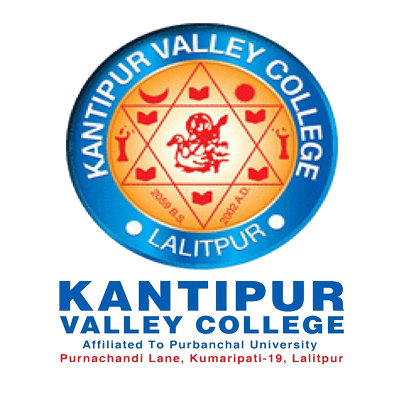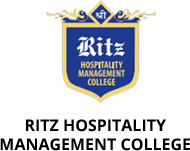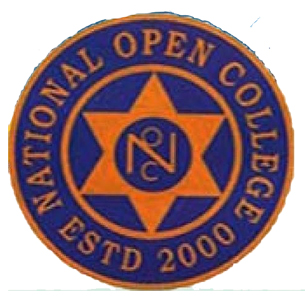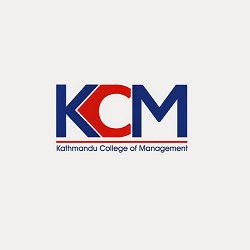Overview
BBA at Kathford College, Balkumari, Lalitpur
BBA at Kathford College, Balkumari, Lalitpur, follows Tribhuvan University’s Faculty of Management structure and uses CMAT for admission.
The program serves students who want a grounded management degree in Nepal with clear rules, semester-wise evaluation, and steady practice in communication, analysis, and team work.
You study core areas such as accounting, finance, marketing, operations, and organizational studies, then advance into research tasks and a capstone-style project that shows you can apply what you learned.

Affiliation: TU–Faculty of Management (FoM)
Location: Balkumari, Lalitpur
Duration: 4 years (8 semesters)
Admission route: CMAT (FoM) with merit-based placement
Highlights
-
Curricular authority: FoM sets course outlines, evaluation weightage, and semester flow.
-
Core coverage: Accounting, economics, statistics, finance, marketing, operations, HR, business law, and research methods.
-
Skill focus: Business communication, spreadsheet use, case reading, presentations, and short written reports.
-
Assessment: Internal tasks and TU examinations each semester under FoM rules.
Curriculum Details
Early semesters establish fundamentals that many Nepali students need before tackling higher-level subjects.
-
Foundation block: Principles of management, micro and macro economics, business mathematics, business statistics, financial accounting, managerial accounting, and business communication.
-
Functional block: Marketing management, financial management, human resource management, operations and supply basics, and management information systems.
-
Context block: Business environment in Nepal, business law, ethics and governance, entrepreneurship basics, and project planning.
-
Methods block: Research methods, report writing, basic analytics with spreadsheets, and a final project or internship as per FoM guidance.
Each course includes clear objectives, reading tasks that fit the local context, and short exercises that strengthen your command of terms and procedures.
Objectives
-
Build core literacy in accounting, finance, marketing, operations, and people management.
-
Develop decision habits through problem sets, case notes, and structured presentations.
-
Improve communication with concise writing, slide decks, and viva-style discussions.
-
Support career readiness through project evidence, basic analytics, and teamwork records.
Scope
Graduates move into entry roles in banking and finance support, sales and marketing coordination, HR assistance, operations scheduling, and general administration. Some students choose public service preparation after building reading discipline in economics, management, and law. A smaller group targets entrepreneurship after preparing a simple plan and gathering feedback from mentors.
Learning Outcomes
-
Analytical reading: Interpret tables, ledgers, and simple financial statements; extract key points for a memo.
-
Quant basics: Use statistics and spreadsheets to summarize trends and compare options.
-
Functional insight: Explain how marketing, finance, HR, and operations connect in a small Nepali firm.
-
Communication: Prepare short reports, deliver clear presentations, and respond to questions professionally.
-
Project discipline: Plan milestones, record decisions, and submit a final report with references.
Skill Development Modules
-
Accounting and finance practice: Journal entries, bank reconciliation, ratio snapshots, cash budgeting.
-
Marketing tasks: Customer profiling, simple survey forms, brief campaign plans, and reflection notes.
-
Operations basics: Process maps, inventory records at a small scale, and checklists for service flow.
-
HR support: Job description drafts, short interview guides, leave records, and code of conduct briefs.
-
Data and tools: Spreadsheet formulas, charts, pivot summaries, and careful file naming and versioning.
-
Professional writing: Email etiquette, minutes of meeting, executive summaries, and citation basics.
Teaching Methodology
Faculty follow TU syllabi while running lecture-plus-activity sessions. Labs or workshops use spreadsheets and presentation tools. Students work in small groups for case reading and brief project assignments. Internal evaluations use quizzes, submissions, and presentations. Regular feedback translates into revision tasks so you learn how to improve before final exams.
Admission Requirements
-
Eligibility: FoM rules for BBA admission (10+2 or equivalent with minimum criteria set by FoM).
-
Entrance: CMAT conducted by FoM is mandatory.
-
Selection: Merit-based placement subject to seat availability and campus procedures after CMAT.
-
Documents: Academic transcripts, citizenship or ID, recent photographs, and forms as per intake notices.
Career Opportunities
-
Banking and finance support: Teller support, back-office processing, customer desk, documentation.
-
Sales and marketing: Product listing, field coordination, lead tracking, and event support.
-
HR and admin: Recruitment support, record management, scheduling, and onboarding assistance.
-
Operations: Store records, purchase follow-up, vendor communication, and basic compliance files.
-
Entrepreneurship: Small service ventures with simple accounts, marketing notes, and operational checklists.
Scholarships and Financial Aid
Kathford communicates scholarship routes during admission counseling. Categories generally include merit and need-based support governed by rules that apply across TU-affiliated programs. You should confirm seat counts, forms, and deadlines for the current cycle before applying.
Why Choose This Course?
BBA at Kathford gives you a steady routine: clear outlines from FoM, semester-wise assessment, and practical assignments that mirror real office tasks. Students learn to balance numbers and writing, to cooperate in group work, and to build a modest but credible portfolio before graduation.
Conclusion
BBA at Kathford College helps you turn subject literacy into workplace habits. Careful record-keeping, consistent attendance, and honest teamwork matter more than slogans. Your final report and presentations act as proof of learning when you approach banks, firms, NGOs, or startups for entry roles.
FAQ
Is CMAT compulsory for BBA?
Yes. CMAT is required under FoM rules for BBA admission.
How long is the program?
Four years across eight semesters.
What documents should I prepare for admission?
Academic transcripts, ID, photographs, and forms as instructed in intake notices.
Does BBA include a project or internship?
The final stage includes a project or internship component under FoM guidance.
Can I prepare for banking roles through BBA?
Yes. Practice with ledgers, ratios, and documentation helps you qualify for entry roles in banking support.
Contact Kathford International College of Engineering and Management's administrative office for detailed information on the BBA course, including fees, scholarships, facilities, counseling, eligibility criteria, etc.



.png)















